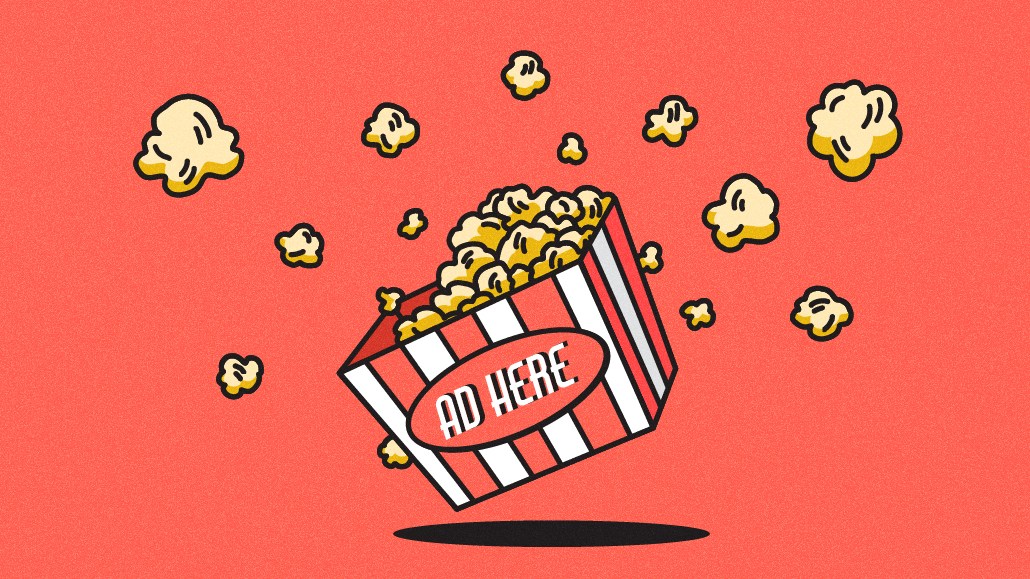Secure your place at the Digiday Media Buying Summit in Nashville, March 2-4
Brands take their intellectual properties to Hollywood — with marketing mixes to go along with them

Barbiecore has reached fever pitch this summer. In anticipation of the upcoming Margot Robbie and Greta Gerwig live-action film based on the Mattel doll that will be released July 21, dozens of brands have released limited-edition Barbie merchandise and many more are collaborating with the brand.
Barbie is just one example of what’s to come as more Hollywood studios collaborate with brands to create movies based on their products and intellectual properties.
Nike, Tetris, Super Mario Bros., Hot Cheetos and others have also gotten Hollywood’s attention, with studios looking to engage millennials who grew up with these brands now that they have significant purchasing power. With movies like Ben Affleck-directed “Air,” “Flamin’ Hot” directed by Eva Longoria and “The Super Mario Bros. Movie,” the brands’ IPs are also gaining clout with Gen Z consumers.
“How do we bring experiences to our fans? If the fans are at the center of our blueprint, how do we meet them where they’re shopping or how do we meet them where they want to experience something new,” Casey Collins, president of Hasbro’s licensed consumer products, said. Collins added that the company’s Dungeons & Dragons IP has gained considerable interest since its film release earlier this year, as well as its appearance in the Netflix series “Stranger Things.” Gen Z and millennial content creators also stream themselves playing the tabletop game on Twitch, YouTube and TikTok.
Movies will always be part of society and people are going to pay attention to what brands are doing before and after the premiere of a new movie to keep the momentum going, which Collins said was a driving force behind Hasbro’s push into entertainment using its own intellectual property. In this sense, Hasbro is always looking for new ways to expand its brands and its location-based entertainment, which is becoming a growing field for Hasbro when it comes to social media awareness.
Brands’ interest in finding ways to translate their IP into entertainment comes as the summer box office shows a shift in audience interest. Superhero movies and comic book adaptations have dominated the summer seasons for the last 10 years, but marketers say those types of films have oversaturated the market, with audience interest likely shifting to movies based on brands’ IP in the next decade. For instance, in addition to Mattel’s Barbie, Hasbro’s Monopoly and Clue games will be featured in movies set to release next year.
For the upcoming “Barbie” movie, Mattel went big with its marketing efforts tied to the film. The company teamed with retailers Gap, Aldo, Forever 21, Primark, Hot Topic and Spirit Halloween. It also worked with Bloomingdale’s on an online and in-store pop-up shop, an exclusive collaboration between Barbie and the retailer’s AQUA brand, window displays and a beauty-styling studio.
“Across the Mattel portfolio, we are bringing Mattel’s brands, franchises, characters and stories to life through a holistic consumer experience across multiple touch points and extending and deepening our fans’ emotional connection through high quality products, stories and experiences that complement our toy business,” said Josh Silverman, chief franchise officer and global head of consumer products at Mattel. “We are always seeking the right partners who see the value of our IP to help us do this.”
Meanwhile, Tetris president and CEO Maya Rogers said that, due to the pandemic, she believes that the gaming industry has reached the level of the entertainment industry in terms of how it attracts audiences, as evidenced by the spike in interest during the lockdown. Despite it being unclear exactly by how much gaming interest has spiked, Rogers said most Gen Z players who signed up for the company’s upcoming 2023 Classic Tetris World Championship Regional Tournament in Portland this October did so shortly after the “Tetris” film was released in March.
“Globally popular brands are always looking for ways to remain relevant and connect with audiences,” said Patrik Wilkens, vp of operations at digital content studio TheSoul Publishing. “Hollywood level films, as well as streaming and TV shows, based around their IP certainly attract worldwide attention, but they also energize that all-important digital relationship and it’s this continuous online connection that may actually be most valuable.”
There is a lot of marketing that comes along with the release of a Hollywood film, from social media to digital outdoor advertising to retail. Rogers stressed that, when it comes to movies based on brands’ IP, fans don’t want formulaic marketing strategies. “The Super Mario Bros. Movie” is a good example of this because both casual and hardcore gamers are familiar with the game and don’t need an overarching explanation of it.
Using existing intellectual property to create movies isn’t a new concept. For example, the Lego brand has done this very well over the years with several movie releases and subsequent experiences at its Legoland amusement parks, according to Aleena Mazhar, svp, managing director and partner at advertising agency FUSE Create. Today, however, brand storytelling entails owning every touch point and building cultural influence around brands.
“This level of immersion is possible due to the ownership of IP creates a big opportunity for other nostalgic brands to revitalize themselves for today’s media landscape and tell their stories in new ways, hopefully bringing new consumers into the brand’s world,” said Mazhar.
More in Marketing

Future of Marketing Briefing: AI’s branding problem is why marketers keep it off the label
The reputational downside is clearer than the branding upside, which makes discretion the safer strategy.

While holdcos build ‘death stars of content,’ indie creative agencies take alternative routes
Indie agencies and the holding company sector were once bound together. The Super Bowl and WPP’s latest remodeling plans show they’re heading in different directions.

How Boll & Branch leverages AI for operational and creative tasks
Boll & Branch first and foremost uses AI to manage workflows across teams.







